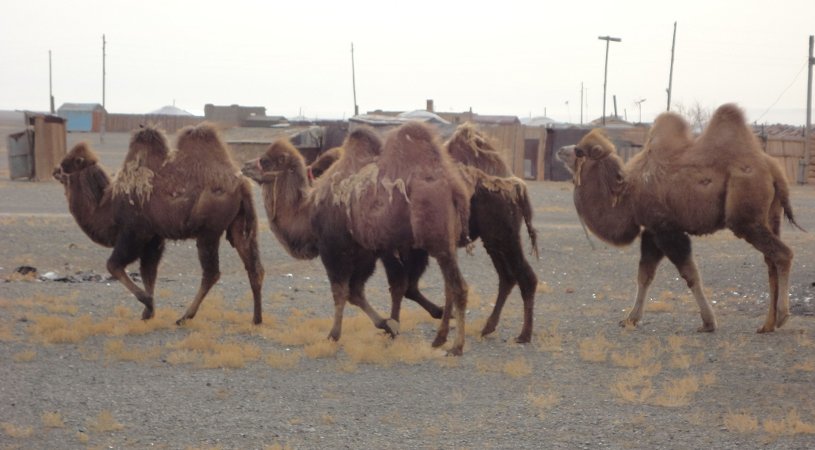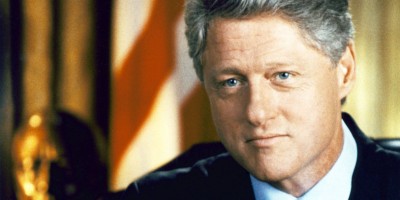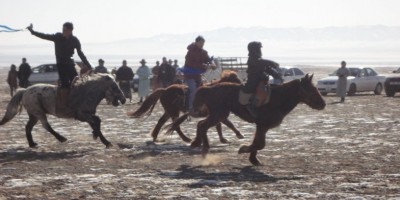This week’s list is inspired by the David Bowie classic “Changes.” Changes to laws, changes to perspectives, and changes to spelling all contribute to the ch-ch-changes theme. There is also a nod to Tracey Jordan for fans of the American TV series “30 Rock” out there, as well as an inspirational story from the Gobi.
1. Ch-ch-changes, time to make a change – Unuudur reported in their March 8th issue about a press conference organized by a group of merchants demanding the provision in the new anti-smoking law in effect since March 1st that prohibits the sale of tobacco within 500 meters of schools be changed to 100 meters.1 The paper further reported that over 3,000 people had signed a petition urging a change to the law. A member of the merchants group described the provision as not reflecting reality and unintentionally making the sale of tobacco like selling illicit drugs.
2. What about his vice? – While merchants demanded changes to the anti-smoking law, others were asking why there isn’t a similar law for the sale of spirits. Unuudur reported in their March 19th issue that the community hotline 11-11 had received over 940 calls since March 1st from people suggesting the government take on alcohol consumption.2 I can’t provide numbers, but my over all firsthand impression is that recreational consumption of spirits has been declining over the last decade. The last two Tsagaan Sars President Elbegdorj has urged an alcohol free holiday, and at least in my part of the country consumption has been noticeably down. My wife has even noticed that the last several work functions she has attended have not included any alcoholic beverages at all. It’s been illegal to consume alcohol in government buildings for several years, but it appears as if there is stepped up enforcement in our town, at least. Cultural norms may be changing, and those 940 callers might get their wish soon enough.
3. Investors may change me, but I can’t change investors – There are reports here and there that the government intends to make significant changes to the Strategic Entities Foreign Investment Law (SEFIL) which was passed just before the summer parliamentary elections. The law put new restrictions on foreign direct investment (FDI) over certain thresholds in “strategic sectors” making them subject to parliamentary approval. The premise of the law makes quite a lot of sense in a small economy. If a private investment could potentially have significant influence on the economy, then it makes sense that some sort of government oversight be placed on it to ensure proper implementation and to protect other sectors from negative impacts. However, there has been a lot of criticism of the law from investors directed towards its ambiguity and poor formulation which potentially put many investments at risk of being needlessly politicized. Revisions to the law seem inevitable, though, if, as some are suggesting, FDI is significantly down since its passage. However, there is still a lack of hard data to support a causal relationship, because declining FDI is arguably confounded by other factors unrelated to the law such as the long running dispute between the government and Rio Tinto.
4. Sign of the Times? – The UB Post reported on a new signage regulation passed in February which restricts the use of foreign alphabets on signs and billboards in Ulaanbaatar (here). I have tried to find another source to verify this change in regulation, in particular the actual council resolution, but have failed so far. (If you know where to find it, let me know). If the UB Post report is correct, however, it is a troubling rule that infringes on city dwellers’ constitutionally protected right to free speech. At this point I am hoping that the UB Post has gotten its reporting wrong (not at all a unrealistic hope) and the regulation has more to do with standardizing government and public signage than restricting content. The thought that private businesses could be fined or even lose their operating licenses as a result of the alphabet they choose to use in their signs is too horribly undemocratic to contemplate. Such oppressive regulation, in fact, is ironic given Mayor Bat-Uul’s involvement in the democratic revolution.
5. UB state of mind – You may have noticed a recent surge of promotion for “Mongolian Bling,” a documentary about the hip-hop and rap scene in Ulaanbaatar (see the official site here). What you may not know is that the documentary’s producer Benj Binks also produced a short video awhile back that is a remix of the Jay-Z/Alicia Keys track “Empire State of Mind.” Enjoy.
6. Ask and Ye Shall Receive – Unuudur drew my attention to a funny Twitter exchange between President Elbegdorj and former Deputy Minister of Foreign Affairs G. Tenger. President Elbegdorj is a fan of soccer, and he tweeted a plea to the heavens to assist his team Milan in a recent match. For those who don’t know Mongolian, the expression “Тэнгэр минь Миланд туслаач” literally translated means “My god/heavens please help Milan.” It also can be interpreted as “My Tenger please help Milan” in familial reference to anyone with the name Tenger. Mr. Tenger, taking the opportunity, responded by tweeting “За би хичээе ерөнхийлөгч өө” (Okay, I’ll try, Mr. President!). Just a bit of goofing around by the country’s political leaders. The original tweet is below.

The President gets his prayer answered
7. A taxing issue: the more things change, the more they stay the same – Rio Tinto recently released a report detailing taxes it paid in its various countries of operation in 2012 (see here). According to the report Rio Tinto paid USD 280 million in taxes in Mongolia through its subsidiary Oyu Tolgoi. This amount has been cited previously to counter claims Oyu Tolgoi did not pay taxes in 2012. Claims that Oyu Tolgoi is not paying taxes have been recurrent, and the Rio Tinto report reminded me of the incident back in October when Oyu Tolgoi attempted to debunk the no-taxes-paid claims by posting a scanned copy of its local tax report coversheet (see here). At the time the company was deflecting a controversy stirred up when some MPs declared the company was misleading the public with ads that showed a 70-30 split in benefits between Mongolia and investors from the Oyu Tolgoi project (shown here). The ads were based on findings from an IMF Report. Nevertheless, the attempts at debunking tax claims kind of reminds me of President Obama’s long running battles with the “birthers” in the US.
8. Corruption Watch – Corruption and what to do about it remains a hot topic of conversation domestically. Unuudur provided another good example of this in their March 18th issue with a five page spread of articles on corruption. The articles included coverage of high-ranking officials who have been charged with or convicted of corruption, a report on a focus group of ordinary citizens who reported on their firsthand experiences with bribery, and various editorials about what to do to curb the problems of abuse of power and misappropriation of public funds. The fact that the discussion continues is a very encouraging sign.
9. Devil’s avocado, Larry – Two recent online campaigns (here and here) to promote the more common local English spellings for Ulaanbaatar and Chinggis Khaan got me thinking I need to play devil’s advocate for the sake of fairness to those in the English speaking world who are not familiar with the local standard. To do so let’s put the Mongolian language on the spot as a point of comparison. The Mongolian word for India, which is annoyingly hard for me to pronounce, is Энэтхэг (Enetkheg). It is not even close to India or Bharat, the official forms of the country’s name in the two main languages of the country, English and Hindi. The Mongolian word for China is Хятад (Khyatad), which does not sound like the Mandirin word Zhongguo. The Japanese word for Japan is Nippon not Япон (Yapon), and Russia does not start with an “o” sound (e.g. Орос [Oros]) in Russian. And, personally I have very rarely been called by my given name correctly. It usually is just pronounced something like “brown.”
Mongolian speakers are pretty bad neighbors if you accept the logic of the two campaigns, don’t you think? Every language has its own way of internalizing words and names from other languages. It would not surprise me to learn, for example, the Dutch spell George Washington “Jorj Vashington,” nor would I care. Ulaanbaatar is Ulan Bator and Chinggis is Genghis not out of malice, so it shouldn’t be taken with offense anymore than an Indian should be offended to be called an Энэтхэг хүн by a Mongolian speaker. In the case of Genghis, in fact, according to the scholar Christopher Atwood in his “Encylopedia of the Mongol Empire,” the standard English form of the name is just an unlucky accident of history and poor scholarship:
“The term Chinggis has often been interpreted as being [sic] meaning Tenggis, or ‘Ocean,’ thus referring to Chinggis’s pretension of universal rule, yet Igor de Rachewiltz’s identification of Chinggis with a Turkish word meaning ‘hard’ or ‘severe’ seems more probable. The name was pronounced ‘Chingiz’ in the Turkish and Persian languages, and a misreading of the Persian manuscripts by pioneering French scholars in the 18th century produced the European ‘Genghis’ or ‘jenghiz.'” pg. 99.
So, let’s all chill out and let Ulaanbaatar and Chinggis Khaan be whatever makes you happy with full acceptance that those who use another standard mean no harm. And, feel free to call me Brown or Bruun or even Buraa. You’ll be in good company if you do.
10. Is “hero” spelled baatar or Batdelger? – Wrapping us this week’s list is a story from the local newspaper. Mongol Govi in their February 28th issue carried an interview with a resident of Nomgon Soum named N. Batdelger.3 In January when he was out rounding up his animals he fell from his motorcycle and broke his leg. He couldn’t stand, so he crawled on his belly back to his ger over the course of seven days and six nights! He kept himself alive by eating snow along the way. He was also wearing a thick winter deel which kept him warm. He lives with his elderly mother and a disabled sibling in the countryside, so they presumably were unable to send out a search party when he went missing. According to Batdelger the Nomgon community has rallied around him by paying for his transport to Ulaanbaatar for surgery on his leg and by providing his family MNT 200,000. Absolutely impressive example of Gobi courage and strength. A real inspiration.
Footnotes
1. Ч. Зул, “500 биш 100 метр болгохыг шаардлаа”, Өнөөдөр, 2013-3-8, pg. A7.
2. С. Уул, “Архины худалдаа, хэрэглээнд хяналт тавихыг иргэд хүсэв”, Өнөөдөр, 2013-3-19, pg. A6.
3. Н. Түвшинтөгс, “Өлсөж, цангах үедээ цас идэж явсан даа”, Монгол Говь, 2013-2-28, pg. 1.



